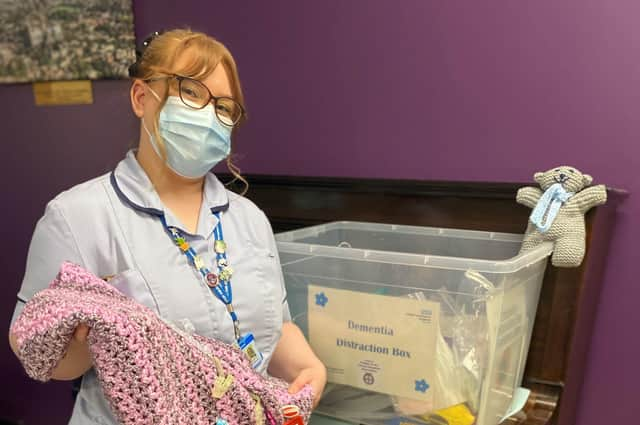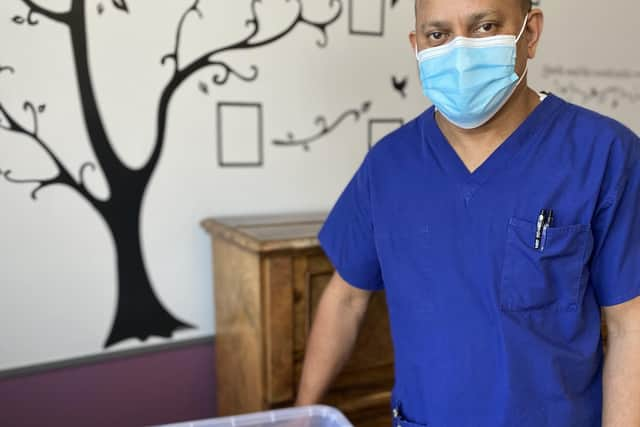‘They are making a really big difference’ – hospitals receive ‘dementia distraction boxes’


The ‘Dementia Distraction Boxes’ contain a range of items for people with dementia: from picture boards designed to help with communication to nostalgic quizzes and conversation starters; from playing cards and dominoes to colouring books and word searches.
The United Lincolnshire Hospitals NHS Trust (ULHT) teamed up with local charities to create the boxes, knowing that hospitals can be particularly unsettling for dementia patients.
Advertisement
Hide AdAdvertisement
Hide AdEvery ward that may care for patients with dementia at Lincoln and Boston hospitals now has one of these boxes.


Dementia practitioner Naz Fernandes said: “The games are a great way to start a conversation and to distract our patients with dementia when they may be confused or agitated.
“The purses and pretend money also give many patients reassurance and a source of comfort that they are able to pay for their care, even though we know that it is free.”
Dementia practitioner Sophie Brown added: “A massive thank you to the Friends of Lincoln County Hospital and the ULHT Charity who have funded these boxes.
Advertisement
Hide AdAdvertisement
Hide Ad“Handmade twiddle muffs, comfort hearts and teddies have also been donated by a the heart2heart Facebook group who we cannot thank enough.”
“These boxes are already making a really big difference. They give our ward teams some really useful resources that may be reassuring or familiar to our patients with dementia while they are in our hospitals. They have been delivered to the wards and are being used all of the time.”